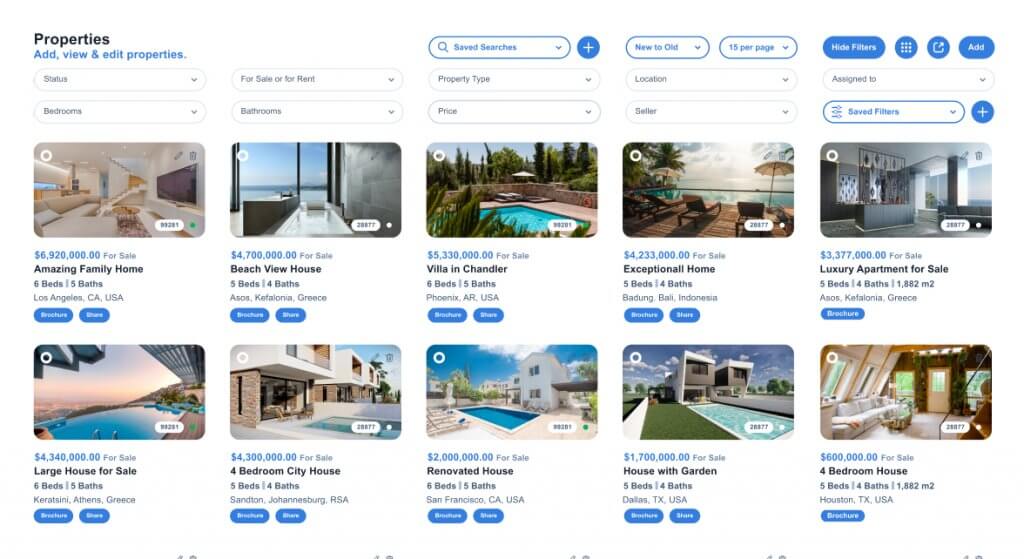“Digitalisation”, as defined by Gartner, “is the use of digital technologies to change a business model and provide new revenue and value-producing opportunities; it is the process of moving to a digital business.”
Digital transformation is a much spoken about concept across industries worldwide.
Companies are increasingly looking for ways to digitalise their product or service offering. In fact, according to CIO, “despite budget concerns triggered by the COVID-19 outbreak, global spending on digital transformation technologies and services will grow 10.4 percent in 2020 to $1.3 trillion”.
Facts and statistics
But how is digital transformation impacting industry? What picture are the statistics painting?
Acquire compiled a list of the stats on digital transformation, both globally and industry specific. These are some of the most notable:
- 45 percent of companies reporting a positive business impact of digital transformation also reported higher net revenue growth.
- While 52 percent of companies plan to cut or defer investments because of COVID-19, just 9 percent will make those cuts in digital transformation.
- The digital transformation market is expected to grow at a CAGR (compound annual growth rate) of 22.7 percent from 2019 to $3,294 billion by 2025
- For 39 percent of CIOs, digital transformation is the most important task given to them by their CEO.
- Construction technology, AI, and Big Data analytics are the top three biggest disruptors in the real estate industry.
“Global proptech investment is projected to reach a record US$6.3 billion across 382 deals in 2019”
So, how does digitalisation benefit organisations? What are the criteria that deem the transformation to have been a success? Digital Marketing Institute
1. The customer experience is enhanced
Statista tells us that almost 4.57 billion people (around 59% of the world’s population) use the internet globally. In 2019 almost 1.92 billion people purchased goods or services online. The speed at which consumers want their transactions processed, problems solved, or questions answered is unprecedented. As a result, the implementation of innovative technologies to boost the customer experience is key.
2. Drives data-based insights
A distinct advantage that comes with digitalisation is the ability to monitor metrics and analyse the data derived from digital activities in real time. As a result, organisations acquire the insights needed to improve strategies, processes, and procedures. This results in increased productivity, customer acquisition and revenue.
3. Improves skills-set and knowledge
Digital transformation comes with it the need for people qualified in the areas of AI, AR, IoT, cloud computing, machine learning, data analytics, etc. This creates an invaluable opportunity for companies to foster a digital learning environment and develop the skills of their human talent. Driving this move from the top-down creates an organisational culture that is powered by innovation and forward-thinking employees.
4. Consolidates processes and operations
Technology today has driven not only the bringing together of global workforces but also the consolidation of company processes, operations, and customer and project management platforms. And this is the fundamental strength of digital transformation.
With this last point in mind, we look to digitalisation and the real estate industry.
Real estate has experienced radical transformations over the last few years. This is largely due to volatile market fluctuations and the digitalisation of the way in which business and customer interactions are conducted today.
So, what are the ways that digitalisation is being implemented in real estate agencies and by property developers around the world? In this blog, we look at two popular ways the real estate industry is digitising:
1. The use of cutting-edge real estate software to:
Better manage property listings
Choose a CRM system that will streamline the management of your real estate, and which integrates with other 3rd-party real estate portals or marketplaces to promote your property portfolios to a global audience.
Centralise customer data and documents
Select a CRM that can upload and handle large volumes of customer data and documents in a single location which can be updated in real-time. This reduces time spent looking for information or misplaced files or paperwork. It also makes the process of updating records seamless without the need to access multiple files or even spreadsheets.
Capture and convert leads
Real estate CRM’s have become popular for optimising sales pipeline management. This applies especially to the way a lead is captured in and then moved through the CRM system until a sale has been concluded.
Streamline activities, tasks, and administration
Opt for a software solution that offers the tools needed to schedule, record and track activities, calls, messages, appointments, tasks, comments on customer interactions, viewings, and follow-ups, etc. This will help optimise your operational workflows become, improve productivity and boosting lead conversion.
Access and generate reports for business insights
Use a real estate CRM that offers customisable dashboards from which to track key metrics and generate vital reports quickly and easily. Give your organisation the insights needed to take fast decisions and make important changes immediately.
Optimise client and agent relationships
– sales and marketing teams are looking to simplify communication with clients and external agents. A real estate software solution like Qobrix makes this possible with its innovative Client and Agent Portals. Through the Client portal, clients can easily access information and documentation related to their properties. Via the Agent portal, agents can be given their own personal space to access presentations, project information, sales and marketing collateral and other promotional material.
Qobrix is an intelligent, multi-system real estate software solution that is transforming real estate businesses in several countries across the globe. Take a walk through our website and discover how Qobrix software can help you digitally empower your real estate business.
2. Dynamic real estate website presence
More and more people are hunting for properties online. In fact, according to some statistics, 50% of buyers find their new home online. So build a real estate website that can attract, engage, and convert prospective real estate leads into home buyers.
To have of a real estate website that converts:
- Create a visual aesthetic that pops
- Make it responsive so viewable on all mobile devices
- Offer easy navigation across all web pages
- Incorporate language that’s easy to understand
- Include high-quality property images that load quickly
- Make use of font (including size) that’s easy to read no matter screen size
- Provide compelling content that answers the questions potential customers are asking
- Implement an SEO strategy so the website can be found more easily on SERPs
- CRM integration for automatic updating of website information
At Qobrix, we can help you build a website that will boost the visibility of your properties and your real estate brand. Find out how we do this here.
So what is the take-away?
If you are a real estate professional looking to compete in today’s digital landscape, consider a move towards digitalising your real estate business.
Start your 15-day Free Trial of Qobrix’s real estate platform today. Test the software and discover how the system can help power your business. Learn how you can benefit from a selection of advanced tools and features built for the real estate industry.




